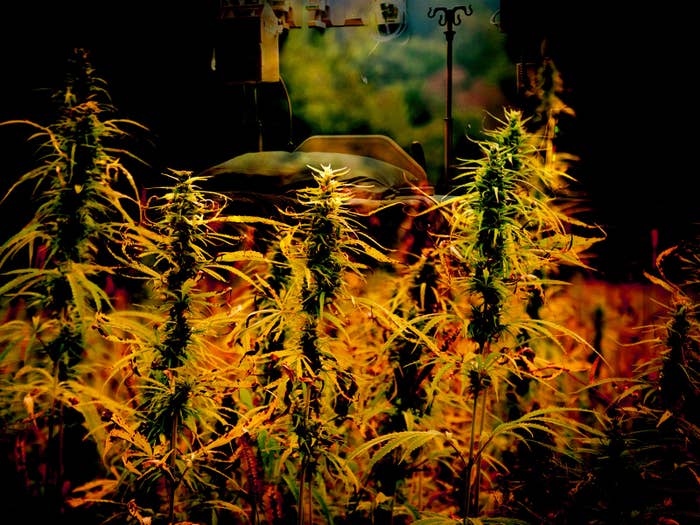
In the 12 months since the introduction of legal medicinal cannabis in Australia, the government's laborious and highly-criticised legislation has resulted in frustration, anger and disenchantment for the very people it was intended to help most.
The government is perhaps the only remaining positive voice when it comes to discussing the multiple access schemes, licenses and pathways put in place to disperse the drug.
To date, the multi-staged procedure in place has resulted in 22 licenses being granted by the government, of which 10 are for supplying medicinal cannabis. The other 12 are for research and manufacturing.
Meanwhile, doctors have been left without education on the drug, leading to a lack of prescriptions, and a thriving black market that feeds the 100,000 people in Australia who allegedly self-medicate.
In a statement to BuzzFeed News, the government said more than 300 people gained access to medicinal cannabis through its pathways in the last year. Only 99,700 to go.
When asked by BuzzFeed News about progress over the last year, ANU Medical School's Dr. David Caldicott responded with a gif of a train falling off of an exploding bridge.
A "stunningly dull effort," he said. Caldicott has spent the last year insisting that the government's current schemes are not up to par, citing international programs from Canada and Israel that have far surpassed Australia's.
Lucy Haslam, whose son Dan inspired then-premier of NSW Mike Baird to investigate medicinal cannabis further in 2015, says the compassion that started the conversation has been "replaced with an iron fist" of legislation. "It's hard to think of legislation that has so adversely affected the people it was intended to help," she told BuzzFeed News.
Haslam now runs United in Compassion, which campaigns for patient access to dried herb and full spectrum herbal medicinal cannabis extract. She says medicinal cannabis must be effective, favourable for patients, and affordable.
"The science is ignored, the police are in a dilemma, the human rights lawyers are lining up, health outcomes are compromised and the government still refuses to acknowledge the issue or show desire to admit they got it wrong," said Haslam.
On Facebook, groups dedicated to discussing cannabis in Australia have instead evolved into distressed forums of shared incompetence, where few can access the drug they were so ready to seek legally a year ago. "There is so much red tape," one prominent cannabis campaigner told BuzzFeed News. "I have taken matters into my own hands."
In the online Australian cannabis community a once-warm mood has become stressed as disputes break out over those who do and do not gain access to the drug legally.
"There is so much division, jealousy, possessiveness, egos, greed and bitching in this so-called cannabis community the government only has to sit back and do nothing because it is self-destructing," wrote medicinal cannabis campaigner Steve Peek in early October.
The cannabinoid products made available by the TGA are also extremely expensive, with claims of fees as much as $120 a day required to treat a child with pediatric epilepsy. Even when legal access is granted to an Australian patient, some struggle to afford the drug when it's not being sought via compassionate suppliers, who supply for free, or the black market, which is still considerably cheaper than the government's options.
Lanai Carter, whose son, Lindsay, was the first person in Queensland to receive medicinal cannabis legally via imported botanical cannabis products, told BuzzFeed News the introduction of legislation did not make anything easier for her.
A Queensland patient has been waiting over five months just for Queensland Health (not the TGA) to give a decision on the application to the patient's doctor. "These patients should be prescribed this medicine on the same day as its recommended by a doctor or specialist," she said.
“This year my son faced a gap in the supply of one of his medicines for over seven months because the application processes and import/export processes just took far too long," said Carter. "The doctor had put in an application late last year to ensure he would not run out of supply and unfortunately that’s exactly what happened."
Carter estimated her son's medical costs at $525 per day if she was to use the product recommended to her by doctors overseas, however she can't even access this product in Australia and there are no medicinal cannabis products that have PBS funding. "The costs are insane, completely unaffordable, and unsustainable," she said.
"Patients are literally dying waiting to be legally prescribed this medicine. I don’t want my son to become another statistic."
Veterans are also affected by the complicated process, with PTSD, pain and insomnia some of the most commonly diagnosed conditions aided by medicinal cannabis. However many are having to resort to black market products because the TGA is reluctant to approve use for these diagnoses.
Damon Adams from Weeded Warrior, an organisation founded to help those with service-related trauma find treatment for trauma-related mental illness, told BuzzFeed News police members and serving military personnel were all risking their careers to take medicinal cannabis.
"There is a multitude of military veterans and first responders using cannabis in lieu of opiates and anti-depressants," said Adams. "The legal pharmaceutical meds have failed them and are not conducive to a life worth living."
Twelve months on, many of the people and organisations who applauded the drug's initial legalisation are angry and confused. Meanwhile, state-run trials continue and weekly patient access figures increase by meagre single digits.
"The script could read as a comedy, if it weren’t such a tragedy," said Lucy Haslam.
